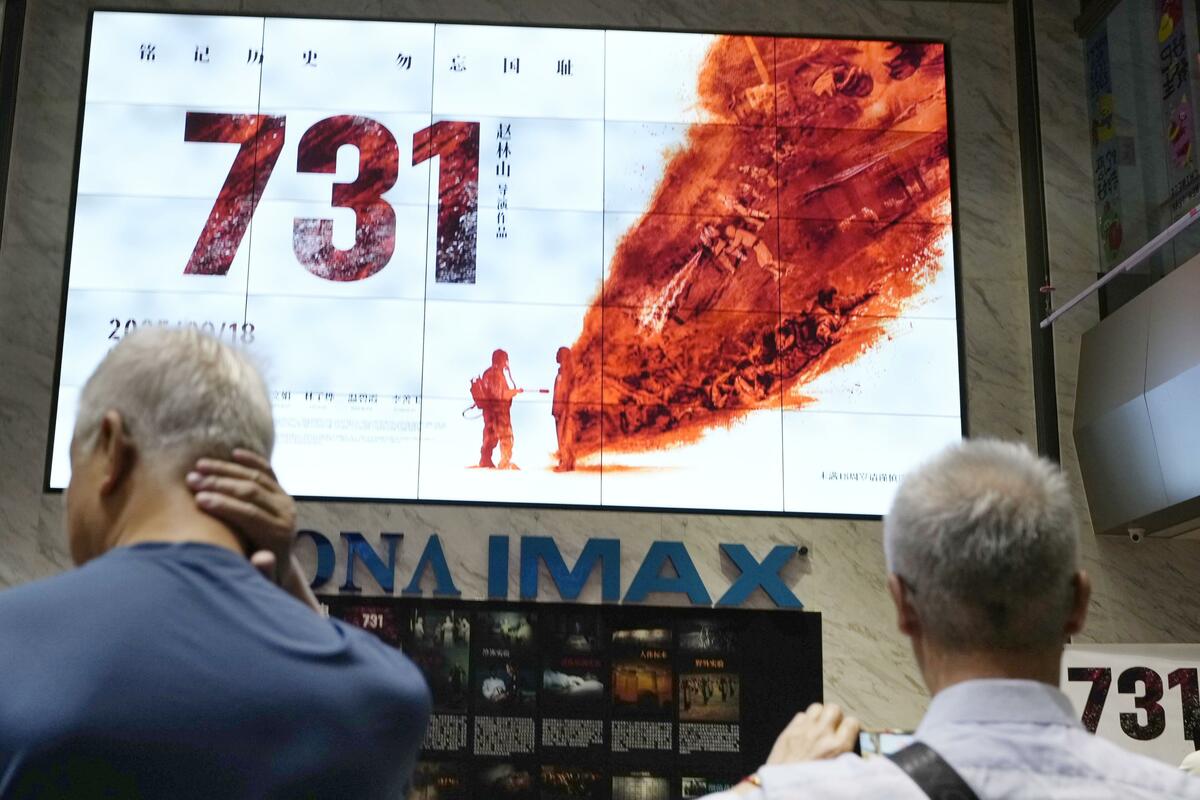By South Korea
Copyright kyodonews

BEIJING – A movie telling the story of the Imperial Japanese Army’s notorious Unit 731 was released in China on Thursday, the 94th anniversary of the Mukden Incident near Shenyang that led to Japan’s occupation of the nation’s northeast through 1945.
The film “Evil Unbound” is one of several war-themed works that have been screened in China this year, which marks 80 years since Japan’s defeat in World War II.
Its release, which had been postponed from the original date of July 31, came after Beijing on Sept. 3 celebrated its victory in what it calls the 1937-1945 War of Resistance against Japanese Aggression. China staged a massive military parade in the capital’s Tiananmen Square to mark the occasion.
Chinese moviegoers had eagerly awaited the film about the Harbin-based unit, which according to historians conducted biological and chemical warfare research in China during World War II. The movie has reportedly racked up over 200 million yuan ($28 million) in box office revenue.
Some viewers at a Beijing movie theater said after the screening that the violent acts of Japanese soldiers and the unit’s human experiments on prisoners of war portrayed in the film were unforgivable.
In addition to mainland China, Hong Kong and Macao, the movie was released in Australia and New Zealand on Thursday, with screenings scheduled in the United States and Canada from Friday, followed by South Korea in November.
The film will also be shown in Singapore, Malaysia, Russia, Britain, Germany and France, according to the movie’s official account on Weibo, China’s equivalent of X.
The work was made with the cooperation of an exhibition hall dedicated to Unit 731 in Harbin, capital of the northeastern province of Heilongjiang, as well as local publicity departments of the ruling Communist Party.
Another Chinese film, “Dead to Rights,” which depicts the 1937 Nanjing Massacre by Japanese troops, topped the summer box office after its release on July 25, adding to concerns about growing anti-Japanese sentiment.
Thursday was also the first anniversary of the stabbing of a 10-year-old Japanese boy in Shenzhen, southern China, that occurred while he was on his way to a Japanese school. He died from his wounds on Sept. 19 last year.
On Sept. 18, 1931, Japanese troops bombed a railroad track near Shenyang — an event that marked the start of the Mukden Incident, also known as the Manchurian Incident, which preceded Japan’s invasion of northeastern China.
At a history museum in Shenyang, some 1,000 people joined a ceremony to commemorate the 1931 incident, with participants striking a huge bell on which a message saying “Never forget national humiliation” is engraved, according to state-run China Central Television.
A 28-year-old restaurant worker in Shenyang said she wants Japanese people to “face history squarely,” wondering how many Japanese are aware of the Mukden Incident. A woman in Beijing in her 30s said after watching the Unit 731 movie that she was “enraged” with Japan.
Chinese Foreign Ministry spokesman Lin Jian said at a press conference Thursday that this year’s war anniversary events in China are aimed at remembering history, honoring fallen heroes, cherishing peace and creating a better future.
“Films on this topic are made to remind people what can be learned from that part of history and the absolute importance of defending peace,” Lin added.
The Shenzhen Japanese school was closed on Thursday’s anniversary, while some other Japanese schools in China switched to online classes.
The Japanese Embassy in Beijing has warned of rising anti-Japan sentiment in China, urging its nationals to take measures to protect their safety, especially when out with children.



